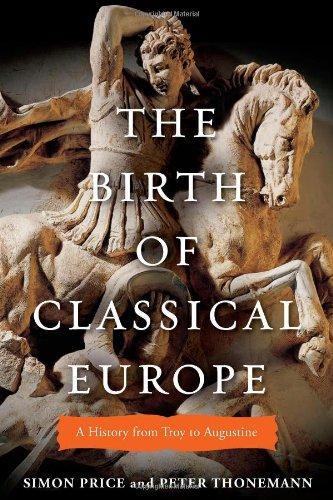-
-
2008., Membran Music Call No: CD Music Piaf Availability:1 of 1 At Your Library Summary Note: Ten CD box set from the famous French chanteuse. Each disc comes housed in a cardboard slipsleeve and are packaged inside a walletbox. Features over 100 tracks. Repertoire.
-
-
2016., The Bodley Head Call No: 330.94 V323a Availability:1 of 1 At Your Library Summary Note: ""The strong do as they can and the weak suffer what they must." --Thucydides The fate of the global economy hangs in the balance, and Europe is doing its utmost to undermine it, to destabilize America, and to spawn new forms of authoritarianism. Europe has dragged the world into hideous morasses twice in the last one hundred years... it can do it again. Yanis Varoufakis, the former Finance Minister of Greece, shows here that the Eurozone is a house of cards destined to fall without a radical change in direction. And, if the European Union falls apart, he argues, the global economy will not be far behind. Once America abandoned Europe in 1971 from the dollar zone, Europe's leaders decided to create a monetary union of 18 nations without control of their own money, without democratic accountability, and without a government to support the Central Bank. This bizarre economic super-power was equipped with none of the shock absorbers necessary to contain a financial crisis, while its design ensured that, when it came, the crisis would be massive. When disaster hit in 2009, Varoufakis argues that Europe turned against itself, humiliating millions of innocent citizens, driving populations to despair, and buttressing a form of bigotry unseen since the Second World War. Here, Varoufakis offers concrete policies that the rest of the world can take part in to intervene and help save Europe from impending catastrophe, and presents the ultimate case against austerity. With passionate, informative, and at times humorous prose, he warns that the implosion of an admittedly crisis-ridden and deeply irrational European capitalism should be avoided at all cost"--
-
-
1986., Yale University Press Call No: 701.17 E19a Availability:1 of 1 At Your Library Summary Note: In this authoritative, lively book, the celebrated Italian novelist and philosopher Umberto Eco presents a learned summary of medieval aesthetic ideas. Juxtaposing theology and science, poetry and mysticism, Eco explores the relationship that existed between the aesthetic theories and the artistic experience and practice of medieval culture. .
-
-
c1987., E.P. Dutton Call No: 709.03 A784a Edition: 1st American ed. Availability:1 of 1 At Your Library
-
-
1968., Greystone Call No: 709.4 V574a Availability:1 of 1 At Your Library Series Title: Art of the world
-
-
2006, c2005., Bantam Call No: 936 A885m Availability:1 of 1 At Your Library Summary Note: In the years 434-454AD the fate of Europe hung upon the actions of one man, Attila, king of the Huns. The decaying Roman empire still stood astride the Western World, from its twin capitals of Rome and Constantinople, but it was threatened by a new force, the much-feared Barbarian hordes. It was Attila who united the Barbarian tribes into a single, amazingly-effective army. He launched two violent attacks against the eastern and western halves of the Roman empire, attacks which earned him his reputation for mindless devastation, and brought an end to Rome's pre-eminence in Europe. Attila was coarse, capricious, arrogant, ruthless and brilliant. An illiterate and predatory tribal chief, he had no interest in administration, but was a wily politician, who, from his base in the grasslands of Hungary, used secretaries and ambassadors to bring him intelligence on his enemies. He was a leader whose unique qualities made him supreme among tribal leaders, but whose weaknesses ensured the collapse of his empire after his death.
-
-
2011., Viking Call No: 936 P945b Edition: 1st American ed. Availability:1 of 1 At Your Library Summary Note: To an extraordinary extent we continue to live in the shadow of the classical world. At every level from languages to calendars to political systems, we are the descendants of a 'classical Europe', using frames of reference created by ancient Mediterranean cultures. As this consistently fresh and surprising new book makes clear, however, this was no less true for the inhabitants of those classical civilizations themselves, whose myths, history, and buildings were an elaborate engagement with an already old and revered past filled with great leaders and writers, emigrations and battles. Indeed, much of the reason we know so much about the classical past is the obsessive importance it held for so many generations of Greeks and Romans, who interpreted and reinterpreted their changing casts of heroes and villains. Figures such as Alexander the Great and Augustus Caesar loom large in our imaginations today, but they were themselves fascinated by what had preceded them. The Birth of Classical Europe is therefore both an authoritative history, and also a fascinating attempt to show how our own changing values and interests have shaped our feelings about an era which is by some measures very remote but by others startlingly close.







![Adieu mon coeur [CD] Adieu mon coeur [CD]](/Library/images/cover/noimage.png)







